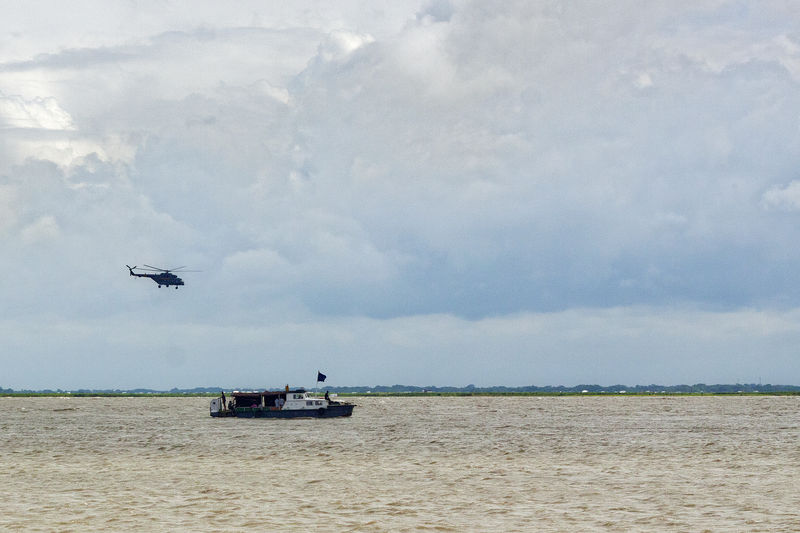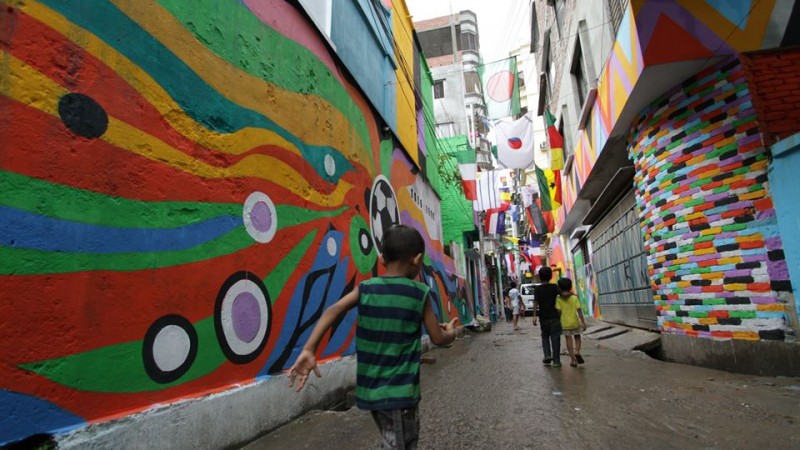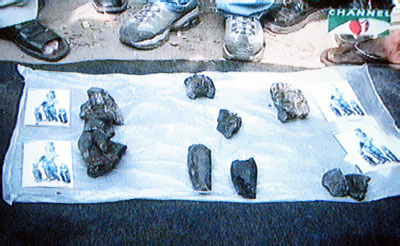(First Published in Rising Voices)
We often talk about extending the global conversation to every corner of the world with the use of social media tools. The means to do this are manifold and depend upon the support and implementation of local institutions. The main impediment to this cause is the lack of awareness of the freely available tools available to enter the global conversation and the absence of basic communication infrastructure in the developing world. Essentially, the digital divide is much larger in these countries than the developed countries.
However, with the proliferation of mobile communication in regions such as the Indian Sub-Continent and Sub-Saharan Africa, internet access has reached remote rural areas without the need of additional infrastructure like cables and land lines. But the potential of this phenomenon is largely yet to be harnessed.
Non-Profits are the Key
The not for profit organizations or NGOs as they are known in some parts of the world have a wider influence on the population of the developing countries. In some countries they contribute by sustaining a large workforce and their development budgets frequently make up a major part of the economy. These non-profit organizations have the capacity to use this technology on a wider scale and, thereby, to inspire a communication revolution among the people they serve. So when we talk about bringing the fruit of social media to each and every person in the world, we cannot progress much without enlisting the help of non-profits.
The digital divide
Which side of the digital divide are the non profits and NGOs? First let us look at the developed countries. In the USA, the Overbrook Foundation had released a report assessing some of the foundation’s human rights grantees use of Web 2.0 tools. Some findings are:
- Most of the organizations use the web more as a source of information than as a tool for connecting with others.
- Roughly half of the organizations — in most cases, the larger ones — maintain blogs.
- Respondents experienced a great deal of frustration in determining which tools to use and where to turn for help.
- Participants felt a generation gap with the new technology. “I’m always trying to catch up to my younger staff members.”
If the exposure of non-profits from developed countries to social media look like this then imagine the state of non-profits in developing countries. They are still in the process of incorporating to the digital age. Slowly, more and more non-profit institutions are making their web presence felt. But their web presence is mostly characterized by static web 1.0 websites which don’t allow for participation or interaction. They remain typical brochure sites with nothing more than a mission statement, some advertisements, rarely updated newsletters, a few photos, contact information, and zero interaction.
Nepal’s ASMITA is a powerful advocacy organization where a small group of female media activists are playing a pivotal role in the country’s history. ASMITA uses many forms of media. “It acts as a print magazine, a media campaign for women’s rights, a research group, a media watchdog, a TV and radio producer and a publisher of educational literature.” But what it does not have are participatory web media tools like blogs, videos, podcasts.
More than 20,000 NGOs work in Bangladesh. The official websites of Bangladesh’s two big NGOs BRAC and Grameen have still yet to incorporate web 2.0 applications on a visible scale.
In the era of Web 2.0, non-profits must take their online messages to a new level. Using social media tools like blogs, podcasts, videos and collaborative wikis they can initiate more interaction, make their work more interactive, and can positively distribute their message. We have seen that there is occasionally mistrusts among people regarding certain non-profits, which are not always transparent about their activities. When communicating with interactive social media, stakeholders and supporters can have each have better understandings of each other and ascertain whether everything is working properly.
What is social media or web 2.0?
Techsoup explains web 2.0 in the context of the non-profits:
“Web 2.0″ to me is the building of community and collaboration on a website — wikis, social-networking, user-created content, repurposed content, people interacting publicly through a website, users interacting with staff and with each other.”
The advantages of web 2.0:
You do not need special programming skills to use these tools. Most of them are free or extremely low cost.
Beth Kanter is a trainer, blogger, and consultant to non-profits and individuals who want to effectively use social media. She writes in the Read Write Web:
Non-profits that integrate Web 2.0 tools and techniques effectively into their communications and programming strategies are reaping many benefits….
…In a recent blog discussion on the Netsquared community blog, some nonprofit techies believed that the answer is actually a change of mindset. Their point was that non-profits need to adopt a new philosophy of making their constituents the distributors of their message, and their work. To facilitate this shift, there is a need to educate more non-profits about what possibilities Web 2.0 tools offer and the practical ways to get started. It took years and small steps for many in the nonprofit sector to make the leap from fax machines to email - and it’ll be the same when taking the leap from Web 1.0 to Web 2.0.

Seth Godin’s free one-pager for non-profits courtesy of Npower New York and Squidoo.
Examples of the use of social media tools
- Flickr as Nonprofit Documentation Tool: What happens when you give a grantmaker a camera and flickr account? An interesting use of Flickr as a documentation tool! Also look at the International NGOs flickr group.
- Wiki Adoption in Organizations: Wikis are good for creating a collaborative and flexible knowledge base.
Best practices for non-profits using web 2.0
“How are smart non profits using the power of the web to spread information and have virtual conversations with their supporters? Who are using the web to deliver their message, but more crucially, to engage audiences in a conversation?”
Alexandra Samuel answers those questions in Social Signal quoting some of the best practices:
- The UN Foundation has had a dazzling success with its Nothing But Nets site, which focuses specifically on providing malaria nets to kids in the developing world.
- Invite your community to make contributions other than money. The web is a great place to ask for other kinds of contributions — whether that means connecting people directly with people who need their expertise or services (as in Nabuur) or asking them to share their personal experiences (as with the March of Dimes’ Share your Story project).
Check the rest here.
Why the Web 2.0 is important for small local non-profits?
Ken Goldstein writes that using interactive applications, two-way online communications and user-generated content the established core constituency of a non-profit can be expanded wider, possibly transforming it to a global powerhouse. Some advantages:
- Blogging communicates with the target audience more frequently and more cost-effectively than newsletters and appeal letters.
- RSS feeds of blogs, videos, etc., allow supporters to receive, read, and act upon the communications at their own pace.
How non-profits can start leveraging Social Media
Masternewmedia prescribes ten ways to do it.
If, as a decision-maker of a non-profit, you still are not convinced of the power of new media, then read Beth Kanter’s entire Blog dedicated to the theme: “How Nonprofits Can Use Social Media.”











































